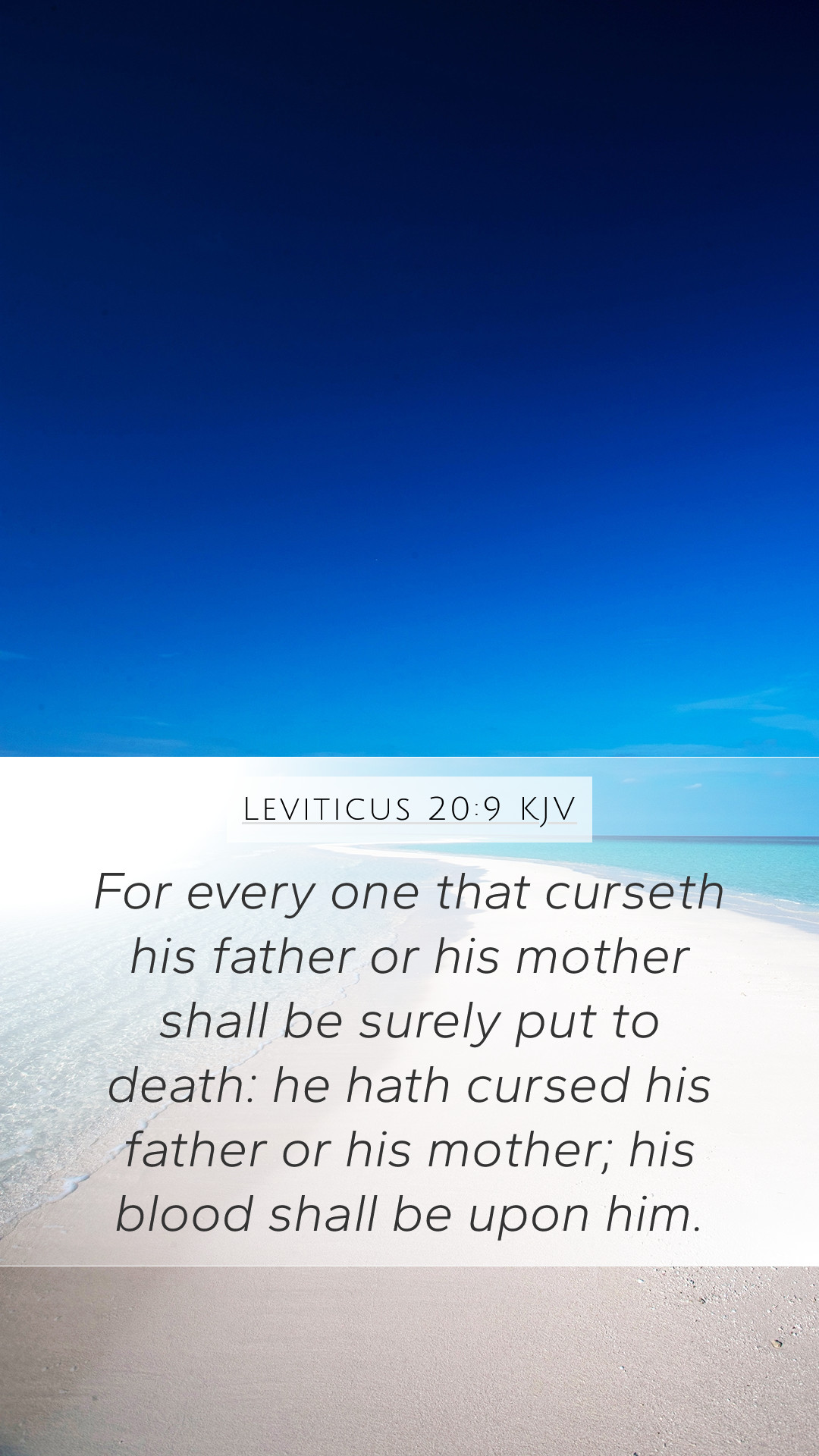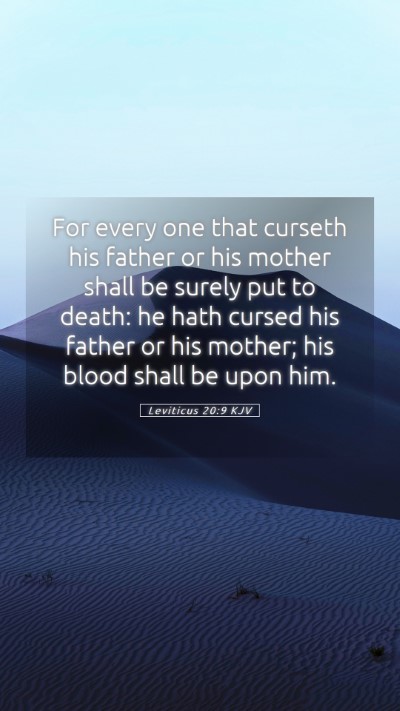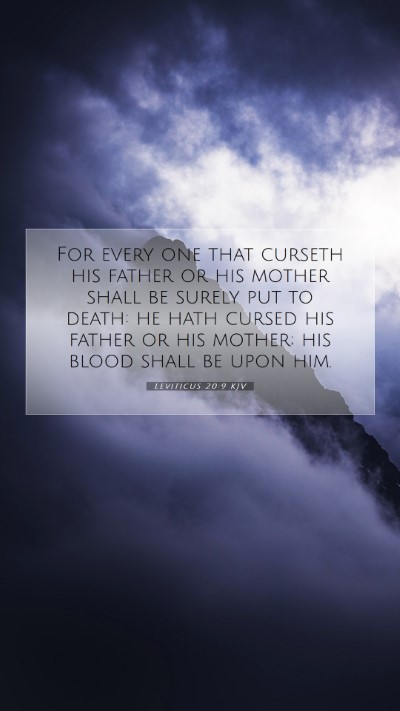Understanding Leviticus 20:9
Bible Verse: "For every one that curseth his father or his mother shall be surely put to death: he hath cursed his father or his mother; his blood shall be upon him." (Leviticus 20:9, KJV)
Overview of Context:
The book of Leviticus serves as a manual for the Israelites, outlining laws and ordinances necessary for the community's sanctity and worship practices. This particular verse emphasizes the severity of dishonoring parental figures, illustrating a fundamental aspect of societal order in ancient Israel.
Key Themes and Insights:
-
Parental Honor:
According to Matthew Henry, the verb "curseth" indicates a serious and intentional act. Cursing one's parents was not merely a verbal insult but was treated as an affront to God Himself, which was central to the social and spiritual fabric of Israelite life.
-
Duty to Family:
Albert Barnes highlights that honoring one’s parents is a fundamental commandment essential to maintaining the stability of society. The consequences for such actions reflect deeper theological principles about respecting authority and maintaining familial integrity.
-
Consequences of Disobedience:
Adam Clarke notes that the punishment prescribed is extreme, illustrating the seriousness with which God views family relationships. The notion of "his blood shall be upon him" reinforces the personal responsibility that individuals bear for their actions and their consequences.
Purpose of Severe Punishment:
This particular punishment serves to establish a clear boundary against actions that could lead to societal collapse. Each commentary underscores the harsh reality that maintaining honor within the family is paramount for communal holiness and spiritual health.
Biblical Exegesis:
From a biblical exegesis perspective, Leviticus 20:9 acts as a reflection of the ancient Near Eastern cultural context in which family honor was critical. In a time when community identity was tied to familial ties, transgressions against such bonds were particularly severe and had lethal implications.
Application in Modern Context:
Today, while the literal punishment may not be applicable, the underlying principle of honoring one's parents remains vital. Understanding how to interpret Bible verses like this one can guide believers in applying ancient principles in contemporary contexts. It encourages us to reflect on how we treat our elders and authorities, emphasizing the importance of respect, love, and responsibility within family dynamics.
Additional Biblical Cross References:
- Exodus 20:12 - "Honor thy father and thy mother: that thy days may be long upon the land which the LORD thy God giveth thee."
- Proverbs 20:20 - "Whoso curseth his father or his mother, his lamp shall be put out in obscure darkness."
- Matthew 15:4 - "For God commanded, saying, Honor thy father and mother: and, He that curseth father or mother, let him die the death."
Conclusion:
In summary, Leviticus 20:9 provides deep insights into the nature of respect for one's parents and the broader societal implications of familial honor. Through careful Bible verse commentary and Scripture analysis, readers can draw lessons that resonate today, reminding us of our obligations within the family construct. Effective Bible study can deepen our understanding of how biblical teachings inform our lives, fostering a respect for tradition while adapting lessons for modern application.


